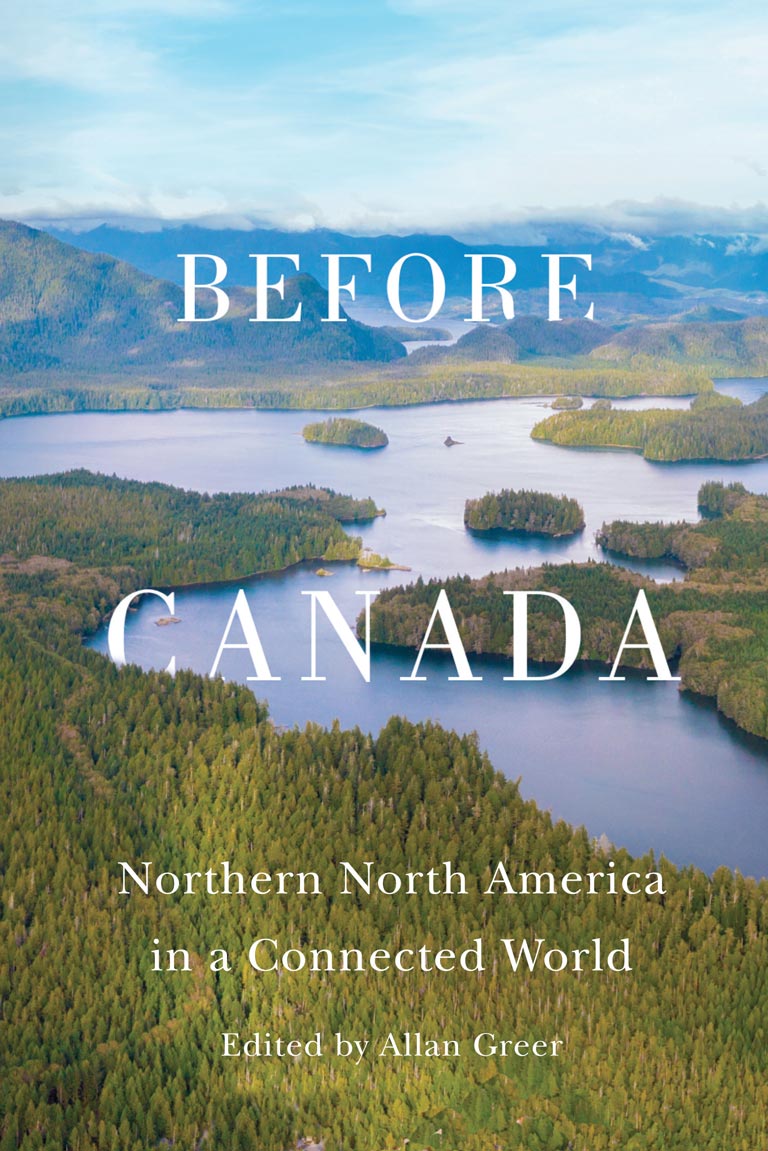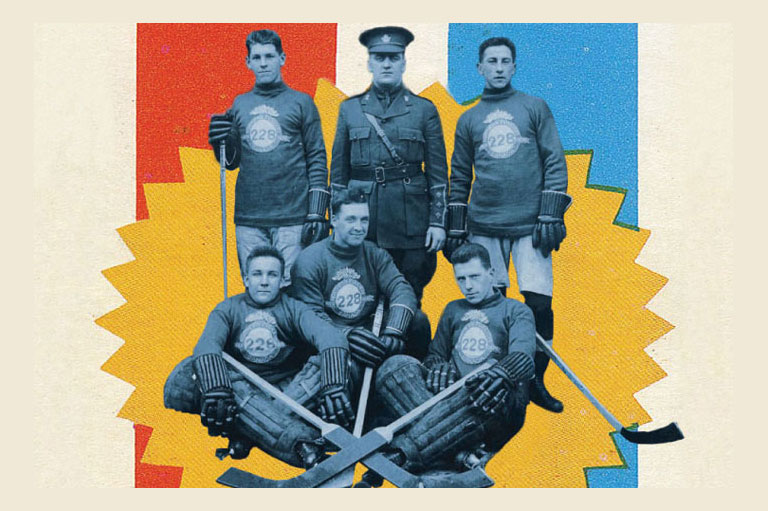Before Canada

Before Canada: Northern North America in a Connected World
edited by Allan Greer
McGill-Queen’s University Press,
413 pages, $44.95
Before Canada is a collection of papers presented at a 2019 McGill University conference devoted to exploring the longterm human history of northern North America. Editor and emeritus history professor Allan Greer argues that the skewing of written professional history towards modern contexts has distorted both the time range that is studied and the interpretation of our past.
Within this book’s more expansive time frames, a particular area of focus is Indigenous peoples’ history, including both the remote past and more recent eras involving encounters with European colonialism. Before Canada is both a demonstration and an important validation of what is called “longue duree” history — its expanded periodization and multidisciplinary character contribute to a promising shift in direction for a discipline that’s often preoccupied with present-day issues and concerns.
In terms of Indigenous history, the contributions address diverse peoples, regions, and historical eras. They include an essay by anthropologists Adrian L. Burke and Christian Gates St-Pierre on the archaeology of social networks commencing in Beringia, the land corridor posited to have afforded Indigenous access to North America; a chapter by anthropologist John W. Ives on the post-Beringia exodus of the Apache people from the Subarctic to the American Southwest; and archaeologist Lisa K. Rankin’s examination of Inuit intercultural exchanges in Labrador over a period of a thousand years. These essays show both continuity and change in Indigenous peoples’ approaches to their environments plus a remarkable series of adaptations over many centuries.
Other chapters examine the history of European cultures in northern North America as well as European- Indigenous exchanges covering a variety of geographical areas and periods. They include historian Jack Bouchard’s succinct essay on the Newfoundland cod fisheries from 1400 to 1550; marine archaeologist Brad Loewen’s chapter on intercultural exchanges in the Gulf of St. Lawrence between 1500 and 1700, which shows how the Indigenous adoption of the Basque txalupa watercraft facilitated the use of natural resources; and literary scholar Mary C. Fuller’s treatment of the roles of antique maps in both Europeans’ conceptualization of North America and their exploitation of its resources.
Yet other topics that are explored include, in an essay by French studies scholar Katherine Ibbett, a Jesuit missionary’s account of a near-drowning experience and the precariousness of the colonial project and, in a chapter by historian Helen Dewar, the claiming of Indigenous waterways by European nations seeking to expand their empires.
With 7 uniquely curated newsletters to choose from, we have something for everyone.
An essay Greer co-authored with doctoral candidate Samuel Derksen characterizes the fur trade as an intercultural exchange that was rife with violence, manipulation, and debt. And the book concludes with historian Christopher M. Parsons’ consideration of two venerable symbols of Canada — the beaver and the maple leaf — including their Asian origins as well as associations with Indigenous peoples long before the symbols’ appropriation by Euro-Canadian cultures.
Certain included maps are particularly illuminating with respect to showing Indigenous occupation both before and after contact with Europeans. Altogether, the authors address long-standing Indigenous presence and resilience in the northern part of the continent, despite the problematic consequences of European imperial ambitions.
In the wake of the Truth and Reconciliation Commission of Canada, the issue of voice is particularly relevant to the study of early Canadian history. Citing anthropologist Julie Cruikshank on Indigenous oral tradition, Greer acknowledges that, while it reaches back into ancient times, “it is a meaningful discourse within the context of a specific Indigenous culture and is not to be judged valid or invalid on the basis of outsiders’ research.”
These are important ethical considerations, and books such as Cruikshank’s Do Glaciers Listen?, Patrick Nunn’s The Edge of Memory, and my own Muskox Land have previously drawn upon Indigenous oral histories and collaborations in documenting long-term historical developments. Yet questions remain: Under what circumstances is it appropriate for non- Indigenous people to publish such knowledge? Should Indigenous knowledge holders be enlisted as contributors for academic publications?
At the 2019 conference, historian Carolyn Podruchny recommended that Indigenous and African voices be included in treatments of early Canadian history. Whether and how these issues can be addressed — in a future edition of the book, with a separate conference, or by another means — are among the questions raised by Before Canada. The answers are yet to be determined.
We hope you’ll help us continue to share fascinating stories about Canada’s past by making a donation to Canada’s History Society today.
We highlight our nation’s diverse past by telling stories that illuminate the people, places, and events that unite us as Canadians, and by making those stories accessible to everyone through our free online content.
We are a registered charity that depends on contributions from readers like you to share inspiring and informative stories with students and citizens of all ages — award-winning stories written by Canada’s top historians, authors, journalists, and history enthusiasts.
Any amount helps, or better yet, start a monthly donation today. Your support makes all the difference. Thank you!
Themes associated with this article
Advertisement




